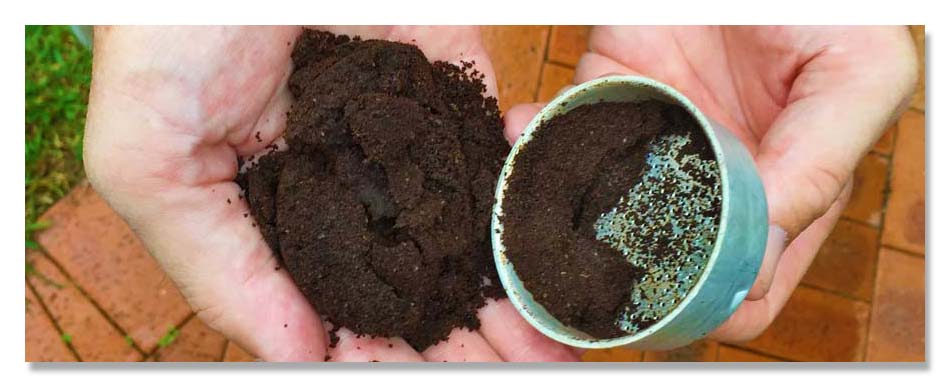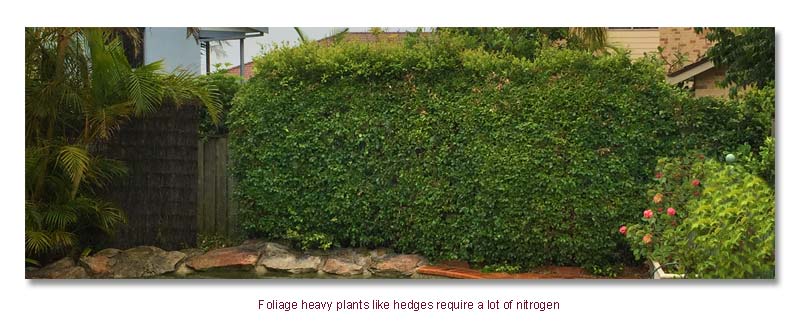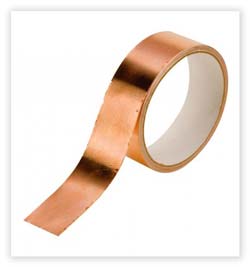There’s an urban myth that says coffee grounds are good for your garden – and like all myth there’s an element of truth in it.
Spent coffee grounds are indeed loaded with good things for the soil and improving plant growth, especially nitrogen. It will also assist in
* improving soil structure,
* water retention in light soils,
* helps buffer against nutrient leaching and
* increases biological activity by the millions of micro-organisms that condition the soil.
But - and there’s a big BUT, it must be composted first.
Spent coffee grounds when spread directly on the soil with inhibit growth, largely because the good elements within remain locked up, but also due to phytotoxicity from the caffeine, tannins and polyphenols.

Composting safely neutralises the toxins and releases the potential goodness, especially the nitrogen in a process called ‘mineralisation’. This is where organic nitrogen changes to inorganic nitrogen and therefore becomes plant available. In this form, as nitrate (NO3-) and ammonium (NH4+), it can be easily taken up by the plant and soil.
 But you want this to all happen in your compost heap, not on the surface of your soil close to your plants.
But you want this to all happen in your compost heap, not on the surface of your soil close to your plants.
This is because of a phenomenon called ‘nitrogen draw-down’.
Essentially the micro-organisms that break it down require nitrogen to do their work, so it gets drawn up from the soil therefore robbing it from your plants.
Of course once the decomposing has occurred new nitrogen is released, but in the meantime your plants have been denied the vital element they need to photosynthesise (nitrogen).
Foliage plants like hedges, vegetables and citrus are generally heavy nitrogen feeders so care should always be taken to ensure they have plenty of nitrogen available to them.

There’s another old gardener’s tale that says coffee grounds are good to repel slugs and snails, so a barrier of coffee grounds around your brassicas and salad crops will keep then safe.
This is true, as the mucus covered creatures will hate the coarse and acrid coffee grounds clinging to them as they slide through it.
 But if you do this you will also restrict supply nitrogen to your veggies due to ‘nitrogen draw-down’ as described above.
But if you do this you will also restrict supply nitrogen to your veggies due to ‘nitrogen draw-down’ as described above.
A classic one step forwards, two steps back.
I’d suggest other slug and snail remedies like copper barrier tape or the simple saucer of beer are a much better option.
Pest control remedies are avialable here from the GardensOnline shop.
Further information about the research into the value of the application of coffee to gardens can be found here from Sustainable Gardening Australia